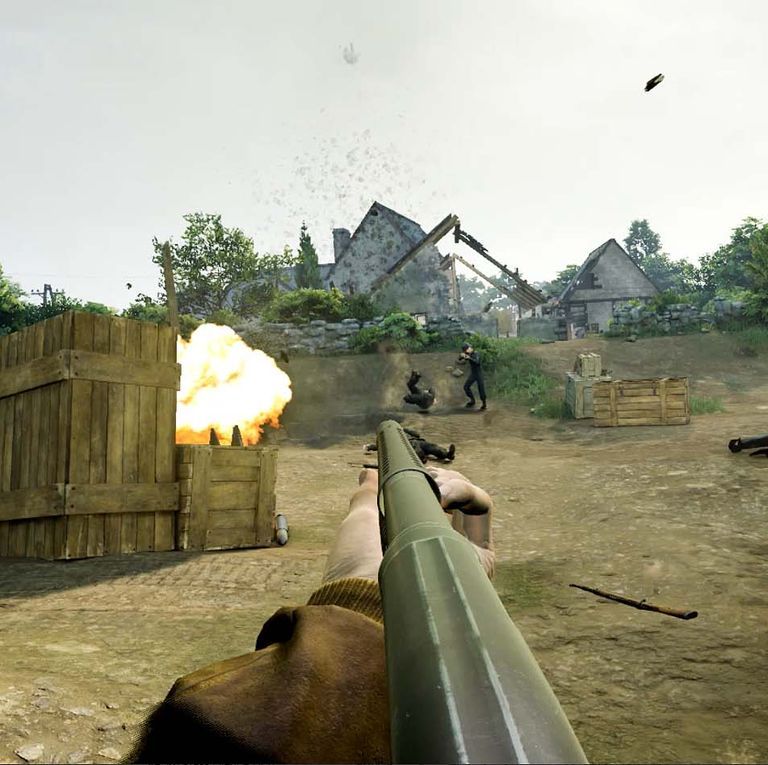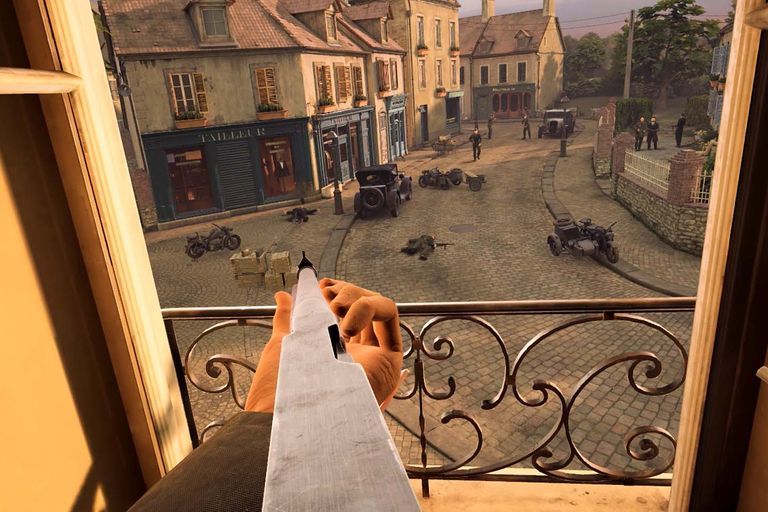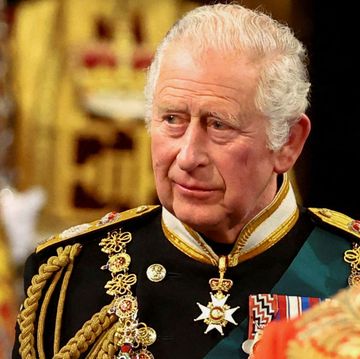Medal of Honor, the classic World War II shooter and brainchild of Steven Spielberg, is embracing the 21st century by making a grand, blockbuster-level return in virtual reality. Respawn Entertainment is teaming up with Oculus to release a new Medal of Honor in VR next year, the gaming studios announced today.
The series, which has been dormant since 2012, was one to rival the likes of Call of Duty and Battlefield. Now, Medal of Honor: Above and Beyond for the Oculus Rift will let you fight Nazis in a whole lot more dimensions. It may sound gimmicky, but from our time playing it before the announcement, we found it to be anything but, marking one of the first truly big-budget, big-publisher video games to come exclusively to VR—an arena that has largely been reserved for indie games and add-ons to big games, like the X-Wing Pilot in Star Wars Battlefront or the Kingdom Hearts VR experience. But it's not without its own new set of challenges, as the total immersion of VR coupled with the current climate could make for some difficult ethical hurdles for a war game like this.
The game controls in Medal of Honor: Above and Beyond are fun. To change weapons, you simply drop what you're holding and reach either down to your hip for your pistol, or over your shoulder for whatever gun you're carrying at that moment. Grenades are on your chest and health syringes are on your left wrist. Reloading each gun works a little differently, but generally involves hitting a button to eject the magazine, reaching on your left hip for a new magazine, inserting the magazine, and cocking the gun. The game even goes as far as to give players the option of wielding traditionally two-handed weapons with one hand, costing them accuracy.
The gameplay in the new Medal of Honor is also tempered with a slow movement speed, which helps a ton for anyone prone to motion sickness. In fact, the action is so fast-paced that you never really notice the speed at which you're moving, especially because it feels very accurate to how fast you could run with all that equipment. When I started a demo, I was definitely a klutz, but by the end I felt like a total badass.
Still, I was concerned with how Respawn would balance the fun gameplay with content from a real, historical war, where the player is one step closer to being the soldier. Past Medal of Honors and realistic war games were one thing, but adding another level of VR immersion for the purpose of a game crosses into weird territory. The team at Respawn did show us some of the new, beautifully produced segments that will be a part of the story gallery, which included real WWII artefacts and images, as well as stories from WWII veterans. The segments felt respectful—giving you time to “pause and reflect,” as the press release puts it—which definitely helps the overall tone of the game.
But this is new territory for video games. VR is being used more and more in PTSD and therapy rounds to help veterans and victims of other trauma on their paths to recovery, but none of us can say for sure what effects a "fun"—and even more lifelike—war game like this might have on players, and on veterans in particular.
All I can tell you right now is that the time I spent with Medal of Honor: Above and Beyond was an absolute blast—thoroughly kicking Nazi ass is timeless (and timely)—and that it really brought that big studio feel to VR for the first time. Respawn and Oculus succeeded in creating a fully functioning AAA title, complete with a campaign, multiplayer modes, collectibles, and more, in a VR-exclusive game set to debut sometime in 2020. With new Call of Duty and Battlefield titles rolling out nearly yearly, other studios may want to keep their eyes on this classic as it sneaks back to reclaim its throne in a new frontier of gaming.
Cameron Sherrill is a former designer and writer for Esquire, where he covered technology and video games.














